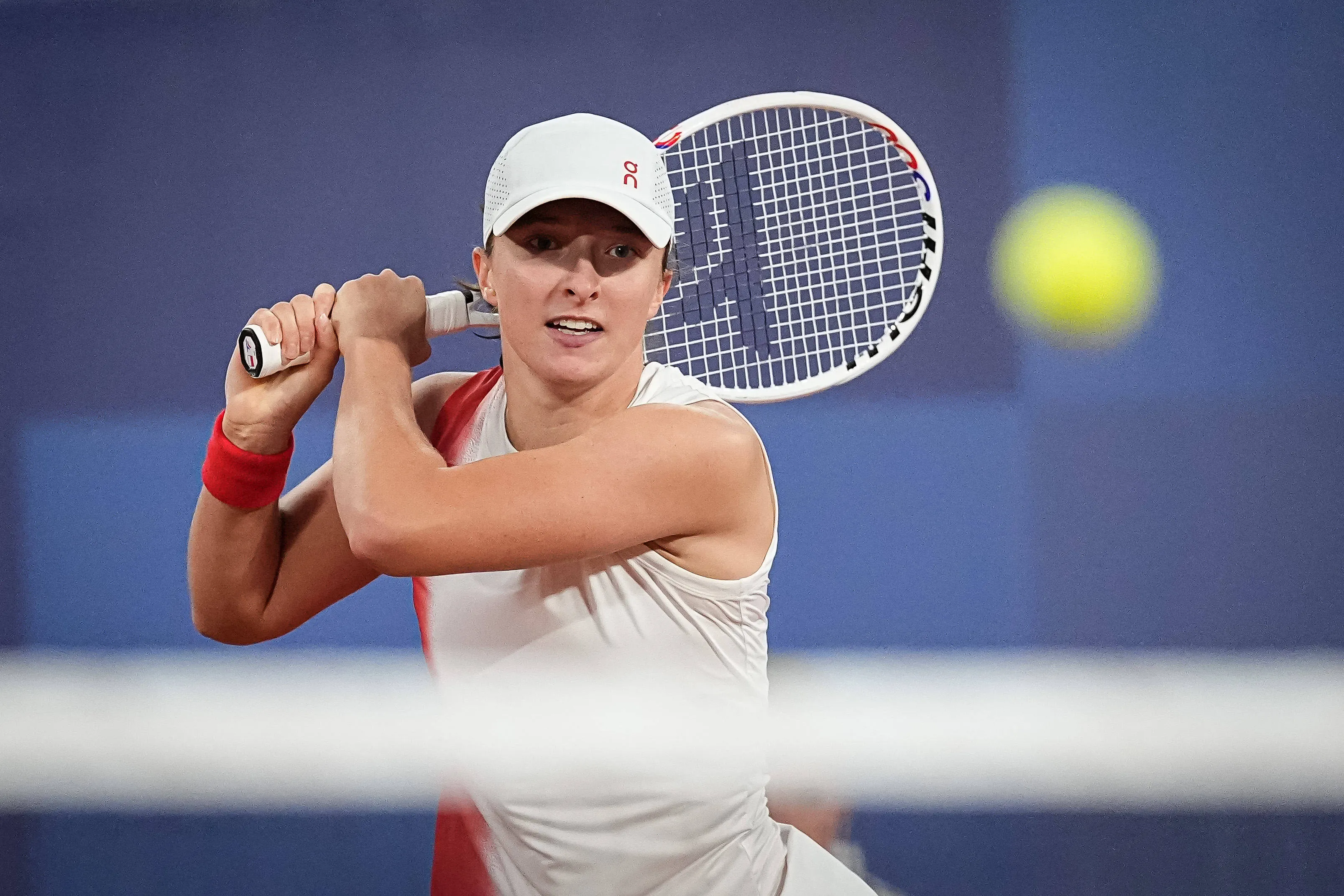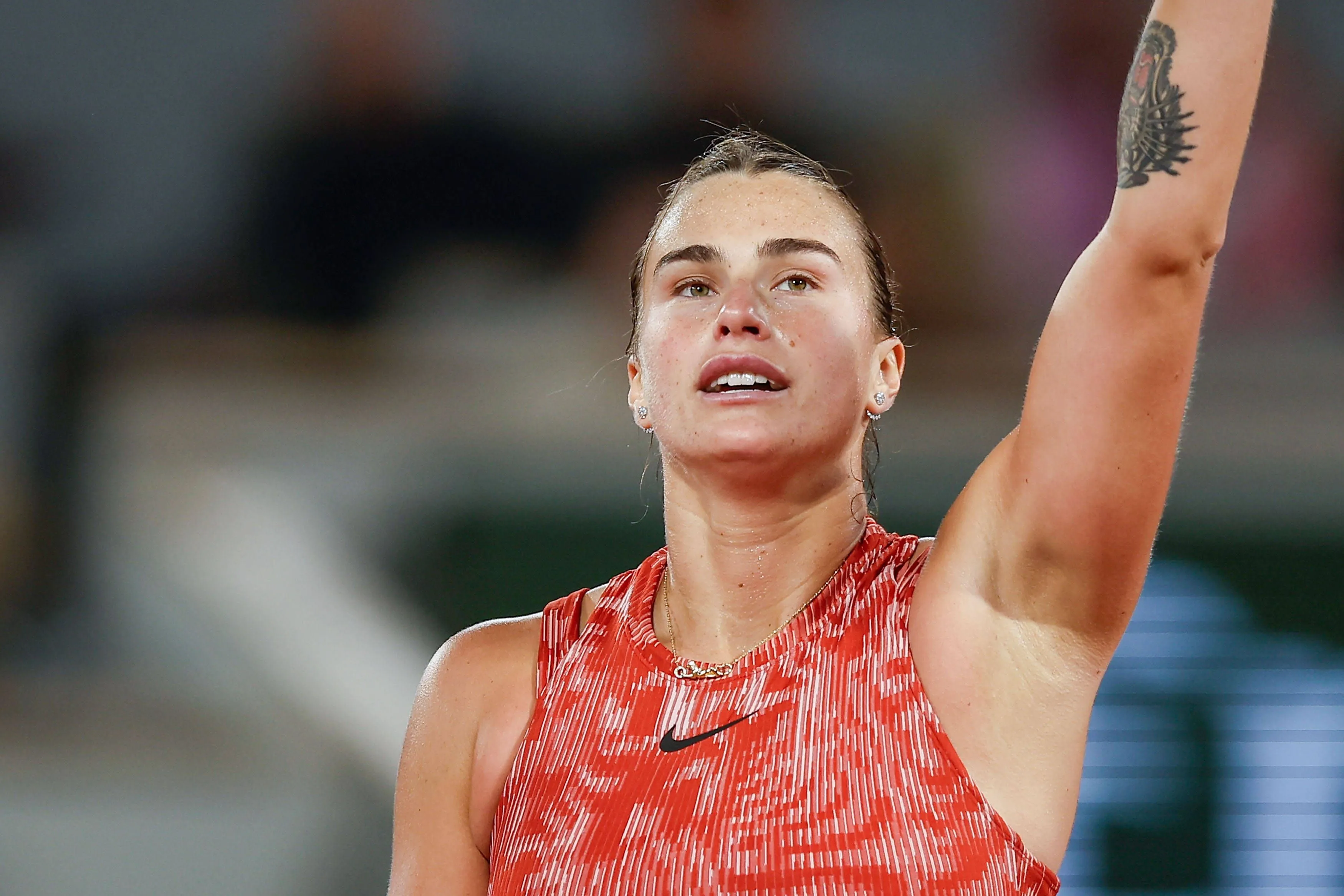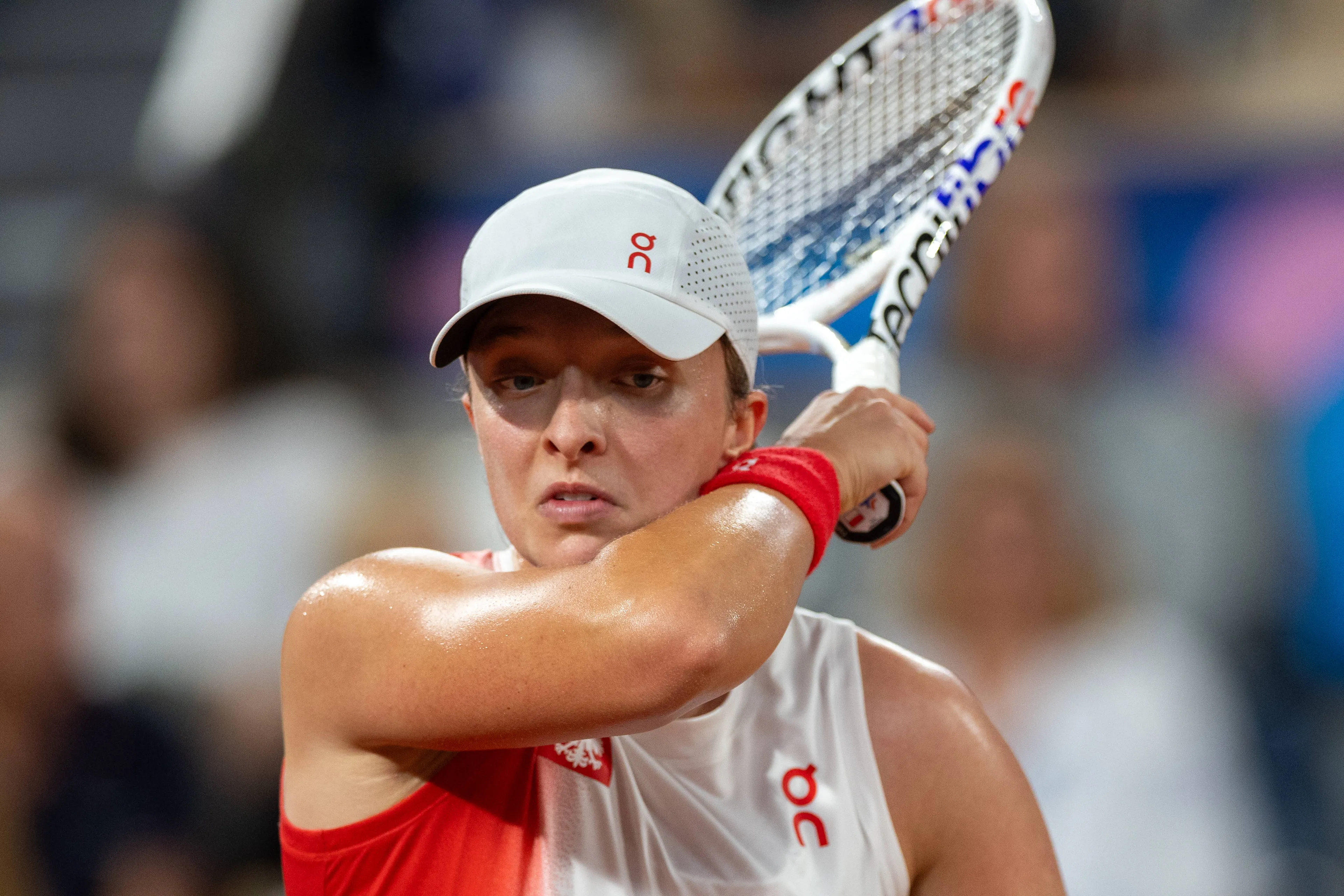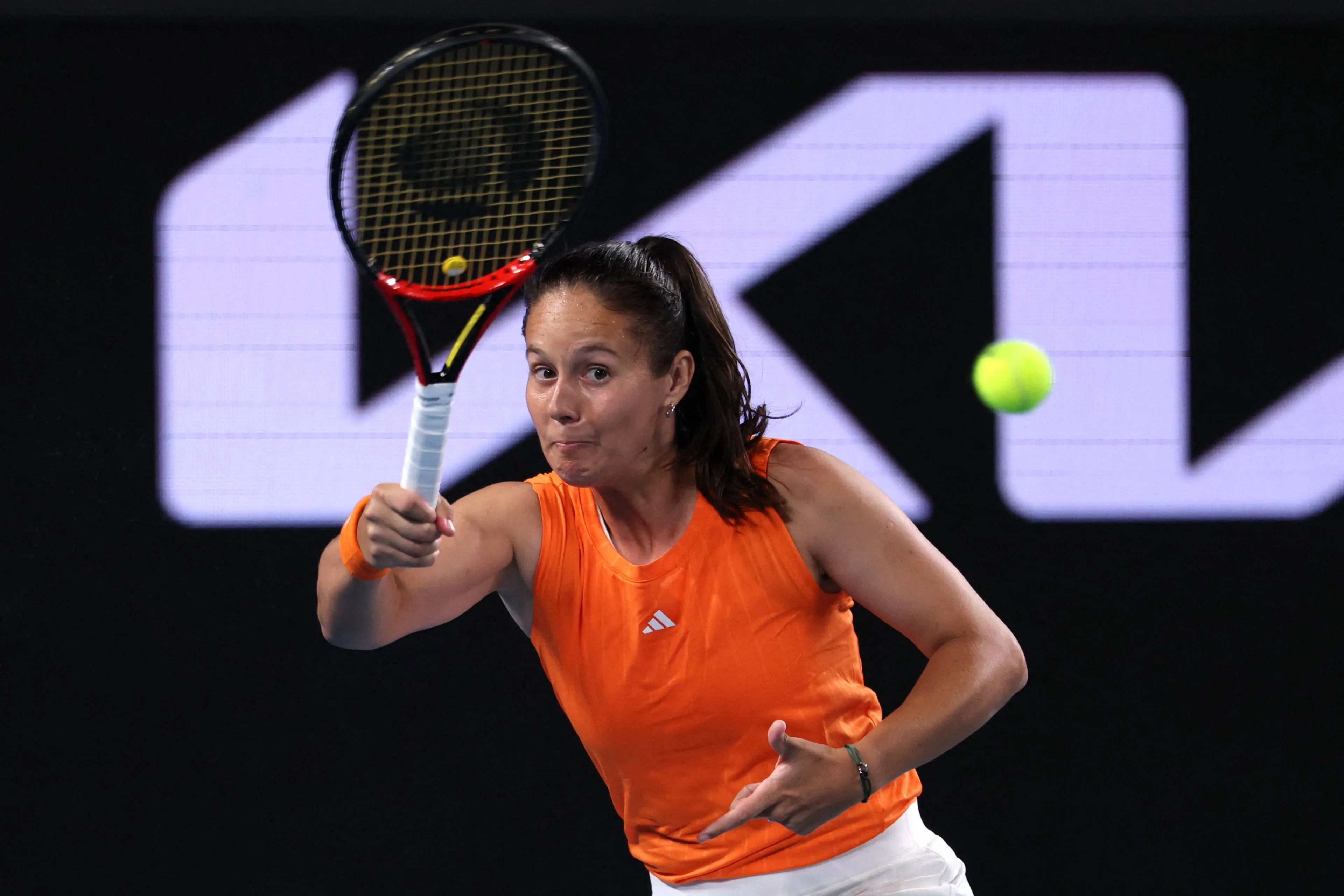
Iga Swiatek believes her regularly reliable backhand shot faltered badly during her semifinal defeat at the 2024 Paris Olympics in a candid post-match assessment.
Swiatek, unbeaten at Stade Roland Garros since 2021, in a run that includes 25 straight match wins, lost to Qinwen Zheng of China. This result sent shockwaves through the Olympic tennis tournament.
It's not often that Swiatek, winner of four of the last five French Open titles, finishes on the wrong end of a match result on her favorite surface. But it happened, and the Paris Olympics X account referred to the monumental upset as an "earthquake" at Roland Garros.
Swiatek was slow off the blocks early on. She dropped her serve three times in the first set, which lasted 40 minutes, as Zheng controlled proceedings from the baseline.
The Chinese player had previously stretched Swiatek to three sets during their first-ever head-to-head meeting at the 2022 French Open. Every sentient being was confident Zheng's dominance was just a passing cloud and that Swiatek would win the match in three sets yet again.
And that assumption was almost true as the Pole came out all guns blazing following a bathroom break to start the second set. She raced to a 4-0 lead, and all was well in Swiatek's world.
But Zheng had other ideas and summoned the moxie and firepower that worked so well in the first set to turn the set around. From that huge deficit, Zheng only lost one of the next eight games to prevail in straight sets.
Speaking to Eurosport Poland after the match, Swiatek was very emotional and shed tears towards the end of her interview. She opined that her backhand was not effective during the day, which impacted her game massively.
The 23-year-old, who is the first Polish player, male or female, to reach the semifinal of the Olympics in tennis, also alluded to being stressed during the match.
"I just had a hole in my backhand. It happens rarely because it is usually my most solid strike. I was not technically well positioned because of the stress and the fact that I played my games day by day."
Read also
The Olympic tennis tournament usually runs for a week, so tennis players don't have the luxury of ample recovery time between matches, as is the case at Grand Slams.
Swiatek partially blamed the crash program of playing on a daily basis as the key reason for her inability to adjust and work on subtle aspects of her game, and she said Zheng was well-equipped to handle that better.
"We didn’t have time to adjust that and work on that. I know that’s not the justification, but I tried to correct that during the match. Today it didn’t work at all. So, she used that to win the game."
Defeat in the semi-final is not the end of the world for Swiatek. She can still finish on the podium. The World No. 1 will play Slovakia's Anna Karolina Schmiedova in the bronze medal match on Friday.
Zheng, meanwhile, will play Croatia's Donna Vekic for gold on Saturday. The runner-up will be awarded a silver medal.
Read also
Loading








